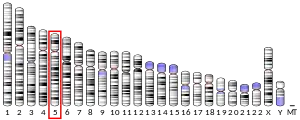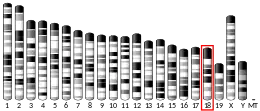| DCTN4 | |||||||||||||||||||||||||||||||||||||||||||||||||||
|---|---|---|---|---|---|---|---|---|---|---|---|---|---|---|---|---|---|---|---|---|---|---|---|---|---|---|---|---|---|---|---|---|---|---|---|---|---|---|---|---|---|---|---|---|---|---|---|---|---|---|---|
| Identifiers | |||||||||||||||||||||||||||||||||||||||||||||||||||
| Aliases | DCTN4, DYN4, P62, dynactin subunit 4 | ||||||||||||||||||||||||||||||||||||||||||||||||||
| External IDs | OMIM: 614758 MGI: 1914915 HomoloGene: 9430 GeneCards: DCTN4 | ||||||||||||||||||||||||||||||||||||||||||||||||||
| |||||||||||||||||||||||||||||||||||||||||||||||||||
| |||||||||||||||||||||||||||||||||||||||||||||||||||
| |||||||||||||||||||||||||||||||||||||||||||||||||||
| |||||||||||||||||||||||||||||||||||||||||||||||||||
| |||||||||||||||||||||||||||||||||||||||||||||||||||
| Wikidata | |||||||||||||||||||||||||||||||||||||||||||||||||||
| |||||||||||||||||||||||||||||||||||||||||||||||||||
Dynactin subunit 4 is a protein that in humans is encoded by the DCTN4 gene.[5]
References
- 1 2 3 GRCh38: Ensembl release 89: ENSG00000132912 - Ensembl, May 2017
- 1 2 3 GRCm38: Ensembl release 89: ENSMUSG00000024603 - Ensembl, May 2017
- ↑ "Human PubMed Reference:". National Center for Biotechnology Information, U.S. National Library of Medicine.
- ↑ "Mouse PubMed Reference:". National Center for Biotechnology Information, U.S. National Library of Medicine.
- ↑ "Entrez Gene: Dynactin 4 (p62)".
Further reading
- Karki S, Tokito MK, Holzbaur EL (February 2000). "A dynactin subunit with a highly conserved cysteine-rich motif interacts directly with Arp1". The Journal of Biological Chemistry. 275 (7): 4834–9. doi:10.1074/jbc.275.7.4834. PMID 10671518.
- Emond MJ, Louie T, Emerson J, Zhao W, Mathias RA, Knowles MR, Wright FA, Rieder MJ, Tabor HK, Nickerson DA, Barnes KC, Gibson RL, Bamshad MJ (July 2012). "Exome sequencing of extreme phenotypes identifies DCTN4 as a modifier of chronic Pseudomonas aeruginosa infection in cystic fibrosis". Nature Genetics. 44 (8): 886–9. doi:10.1038/ng.2344. PMC 3702264. PMID 22772370.
- Ayalon G, Davis JQ, Scotland PB, Bennett V (December 2008). "An ankyrin-based mechanism for functional organization of dystrophin and dystroglycan". Cell. 135 (7): 1189–200. doi:10.1016/j.cell.2008.10.018. PMID 19109891. S2CID 17268857.
- Bingham JB, Schroer TA (February 1999). "Self-regulated polymerization of the actin-related protein Arp1". Current Biology. 9 (4): 223–6. doi:10.1016/S0960-9822(99)80095-5. PMID 10074429. S2CID 208851.
- Lim CM, Cater MA, Mercer JF, La Fontaine S (May 2006). "Copper-dependent interaction of dynactin subunit p62 with the N terminus of ATP7B but not ATP7A". The Journal of Biological Chemistry. 281 (20): 14006–14. doi:10.1074/jbc.M512745200. PMID 16554302.
- Boultwood J, Fidler C, Strickson AJ, Watkins F, Kostrzewa M, Jaju RJ, Müller U, Wainscoat JS (May 2000). "Transcription mapping of the 5q- syndrome critical region: cloning of two novel genes and sequencing, expression, and mapping of a further six novel cDNAs". Genomics. 66 (1): 26–34. doi:10.1006/geno.2000.6193. PMID 10843801.
This article is issued from Wikipedia. The text is licensed under Creative Commons - Attribution - Sharealike. Additional terms may apply for the media files.



